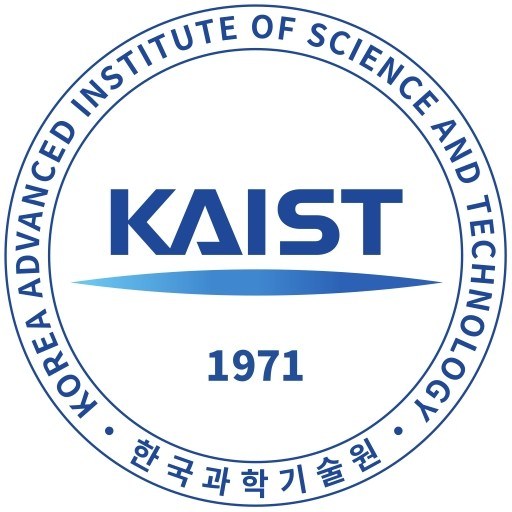Photos of university / #official_kaist
The Department of Chemical and Biomolecular Engineering at KAIST aspires to developing a world-best research program. Prerequisite to achieving the goal is a strong graduate program. The Department houses remarkable research facilities and availability, with which we provide graduate students with the opportunity to develop advanced competence in a wide spectrum of fields ranging from traditional chemical engineering to evolving areas of study. Each graduate student in the Department is expected to acquire the tools to develop and transmit new knowledge in a focused area of chemical and biomolecular engineering. The focused research areas include biotechnology, nanomaterials, catalysis, soft materials, and energy/environment/systems. Overview of each research area is described in the “Research” tab.
The Department offers several programs designed to confer academic degrees on graduate students. The students who meet the respective degree requirements will receive the Master of Science (M.S.) or Doctor of Philosophy (Ph.D.) degrees. In both cases, they are asked to undergo formal coursework and mentoring. Course requirements vary between M.S. and Ph.D. programs; therefore, the students are advised to consult with degree requirements. All graduate students will select thesis advisor from the Chemical and Biomolecualr Engineering faculty and must submit dissertation, in order to receive the degree.]
Prospective students whose final degree is a Bachelor of Science (B.S.) will join the M.S. degree program. Typically, students with a B.S. in Chemical Engineering and/or Biomolecular Engineering degree fulfill the department's requirements for admission. Students, whose bachelor's degree is in other disciplines such as chemistry, physics, engineering, or engineering science, must have a background that the Graduate Studies Committee considers satisfactory for the study of advanced chemical and biomolecular engineering. The admitted students are asked to select a thesis supervisor before they start the school, and to take coursework required for graduation.
The students who earn M.S. degree in Chemical and Biomolecualr Engineering are expected to apply knowledge of focused research areas into chemical and biomolecular engineering practice. The degree program typically runs for 2 years, after which the degree conferees can seek professions in industry and government-founded research organizations, or advance to pursue a Ph.D. degree.
Mandatory General Course
- Special Lecture on Leadership
- Ethics and Safety I
- Scientific Writing
- Introduction to Computer Application
- Probability and Statistics
- Introduction to Materials and Engineering
- Engineering Economy and Cost Analysis
- Introduction to Instruments
- Entrepreneurship and Business Strategies
- Patent Analysis and Invention Disclosure
- Collaborative System Design and Engineering
Mandatory Major Course
- Research Methodology for Chemical & Biomolecular Engineers
- Problem Solving in Chemical & Biomolecular Engineering
Selective Major Course
- Engineering Applied Mathematics
- Numerical Method for Chemical Engineers
- Chemical Process and Product Design
- Design of Reaction System
- Introduction to Catalysis Engineering
- Catalysis for Renewables
- Introduction to Interfacial Engineering
- Rate-controlled Separation Process
- Molecular Electronics
- Multiphase Reactor Engineering
- Mass Transfer
- Fundamentals of Microstructure Fluid Flow
- Advanced Process Control I
- Process Optimization
- Process Systems Engineering Theories and Methods
- Polymer Rheology
- Materials Engineering of Polymers
- Physical Principles of Polymers
- Biopolymer
- Structure and Properties of Macromolecules
- Protein Engineering
- Bioproces Engineering
- Principles of Human Tissue Engineering
- Metabolic Engineering
- Nanobiotechnology for Biochemical Engineers
- Nucleic Acid Engineering
- Energy Engineering
- Inorganic Materials Processing
- Fuel Cell Processes and Materials
- Micro-chemical and Biomolecular System
- Theory of Catalysis
- Design of Catalysis
- Photocatalytic Reaction Engineering
- Phase Equilibria and Physical Properties
- Mixing Technology in Chemical Engineering
- Thin Film Nanotechnology
- Microfluidics
- Colloid and Surface Chemistry
- Advanced Process Design
- Multicomponent Polymer Materials
- Polymer Characterization
- Mechanical Properties of Polymers
- Cell Culture Engineering
- Process for Recombinant Microorganism
- Air Pollution Control
- Water Pollution Control
- Membrane Technology
- Organic Nano-Structured Materials
- Electroactive Polymeric Materials and Devices
- Advanced Reaction Engineering
- Surface Phenomena
- Polymer Fluid Dynamics
- Advanced Process Control II
- Advanced Rheology of Polymer
- Bioprocess Analysis and Control
- Advanced Electrochemical Engineering
- Recent Topics in Chemical & Biomolecular Engineering
- Special Topics in Chemical Reaction Engineering
- Special Topics in Chemical Engineering Thermodynamics
- Special Topics in Transport Phenomena
- Special Topics in Separation Process
- Special Topics in Process Engineering
- Special Topics in Polymer Engineering
- Special Topics in Biochemical Engineering
- Recent Topics in Chemical & Biomolecular EngineeringⅡ
- Recent Topics in Chemical & Biomolecular EngineeringⅢ
Research
- Thesis (MS)
- Seminar (MS)
- Thesis (PhD)
- Seminar (PhD)
Requirements
- Application Form
- Statement of Financial Resources
- Letters of Recommendation
- Degree/Diploma
- Transcripts
- English Proficiency Test Reports (EPT)
TOEFL (PBT 560, CBT 220, IBT 83), IELTS 6.5, TEPS 599, TOEIC 720 or higher - Curriculum Vitae
- List of Honors and Awards
- Employment Certificate
- School Profile/Credit Rating System
- The application fee is KRW 80,000 or USD 80. Payment can be made by credit card or bank transfer after writing application form online. Please note that application fee is non-refundable and you cannot modify application form once you pay the application fee.
Want to improve your English level for admission?
Prepare for the program requirements with English Online by the British Council.
- ✔️ Flexible study schedule
- ✔️ Experienced teachers
- ✔️ Certificate upon completion
📘 Recommended for students with an IELTS level of 6.0 or below.
Scholarships
- KAIST International Student Scholarship
- Korean Government Scholarship (KGSP)
- Russian Government Scholarship – Global Education Program (GEP)


